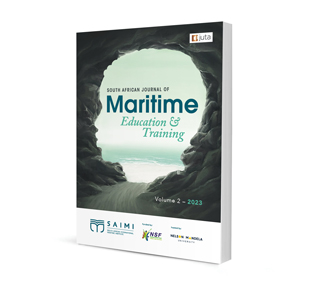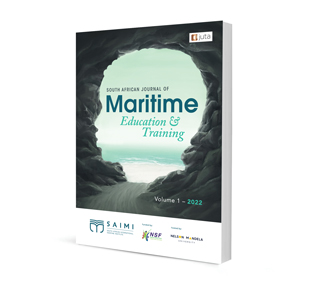
Learning opportunities for further career development and enhancement of seagoing professionals: A South African perspective

Learning opportunities for further career development and enhancement of seagoing professionals: A South African perspective
Authors: Malek Pourzanjani, Hashali Hamukuaya and Tanaka Mugabe
ISSN: 2790-783X
Affiliations: Head of Naval Education, Marine Learning Alliance (MLA) College; South African International Maritime Institute; Honorary Research Fellow at the University of KwaZulu-Natal School of Law, South African International Maritime Institute; Researcher, South African International Maritime Institute; Nelson Mandela University
Source: South African Journal of Maritime Education and Training, Volume 2 Issue 1, p. 71-82
https://doi.org/10.47348/SAJMET/2023/i1a5
Share
Cite this article
Pourzanjani, M, Hamukuaya H and Mugabe, T
Learning opportunities for further career development and enhancement of seagoing professionals: A South African perspective
South African Journal of Maritime Education and Training, Volume 2 Issue 1, p. 71-82 https://doi.org/10.47348/SAJMET/2023/i1a5
Abstract
Maritime education and training (MET) institutions have experienced major changes in their structure, and provision of services over the past four decades. These changes have come about partly due to national and international requirements concerning the seafarers’ standards of competence and partly due to financial regimes under which these institutions are funded, forcing them to diversify into other areas and activities, such as consultancy, research, shore-based training programmes and mergers with larger Institutions. Today’s seafarer is also markedly different to those who went to sea some 30 years ago. The differences in seafarers’ attitude and approach to a seafaring career manifest in a desire to spend less time at sea and treat this as a steppingstone in their working life career. This is true for developed nations, and is more and more becoming the norm, even for the developing countries. With above in mind, one can argue that MET institutions have an excellent opportunity to provide a range of programmes and bitesize courses that can be undertaken by seafarers to prepare them for the next stage of their career. Distance learning and web-based programmes are now commonplace in many institutions, including MET institutions, especially after the recent pandemic and long periods of lockdown. This paper will discuss some of the issues involved in web-based and distance learning, and use a leading global provider of distance learning education to highlight some of the possible opportunities for South Africa as a case study.
